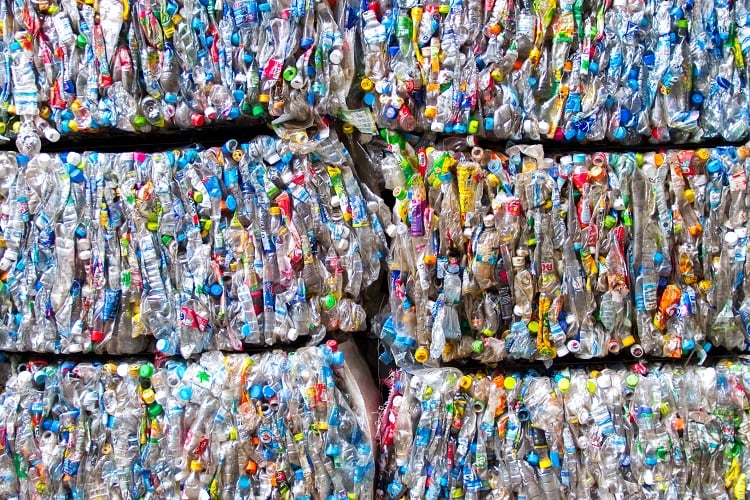Plastic waste is a global concern. It has been estimated that around eight million tonnes of plastic enter the marine environment every year, wreaking havoc on the planet, ocean-life, and humans.
This statistic alone is enough to prove that not enough plastic is being recycled. Indeed, as it stands, just 8-10% of global plastics undergo mechanical recycling processes. One of the key issues is that only a limited share of plastic waste can be mechanically recycled.
Furthermore, the resulting recycled plastic cannot be used for certain functions, such as for package food or pharmaceutical products.
Currently, the majority of plastic waste ends up in landfills. Yet technology developed by VTT Technical Research Centre of Finland has the potential to significantly reduce the amount of plastic wasted.
VTT has decided to spin out a new company, Olefy Technologies, to scale the technology and make plastic a ‘true part of the circular economy’.
Gasification technology
The Finnish research body has been working on its thermal conversion technology for four decades. The process, it claims, can affordably convert most of the world’s waste plastic – even low-quality plastic waste – back into usable virgin grade materials an infinite number of times.
Olefy’s technology is based on gasification, a technique which breaks plastic waste into olefins and other valuable hydrocarbons. The molecules created are equal to oil-based virgin olefins, meaning they are both pharmaceutical- and food-grade quality.
According to VTT, the patent-pending technology (Olefy has eight patents pending) can extract more than 70% virgin grade plastics and chemical raw materials from the plastic waste. The ‘robust’ process is tolerant to contaminants in the feed, which makes pre-treatment of the feed easier, VTT added.
And importantly, the new process can be completed in a single step, ‘majorly’ reducing the cost of plastic recycling and making recycling a preferred option for ‘massive’ amounts of landfill-bound plastic waste the current methods are unable to process.
“Plastic waste is one of the five major global problems that VTT has strategically set itself to solve,” explained Antti Vasara, CEO of VTT. “Olefy is a quantum leap in recycling that will change the way the world views plastic by making it truly circular and guiding us even faster towards carbon neutrality.”
Infinitely recyclable
VTT pointed out that a ‘major’ advantage of the technology is that the virgin quality plastics produced can be recycled an infinite number of times.
One of the problems with current recycling methods is that the quality degrades every time plastic is recycled, explained Matti Nieminen, Head of Technology at Olefy. “After several rounds of mechanical recycling, the quality becomes too poor, and the plastic is no longer usable and goes to landfill.
“With the Olefy recycling process, the quality of the plastic is equal to virgin grade, so it can be recycled indefinitely and materials no longer need to end up in landfills. In essence, Olefy will make it possible for plastic to be a true part of the circular economy.”
Another way Olefy’s process differentiates itself from conventional plastic manufacturing is in eliminating the crude oil naphtha from the process. This makes for both financial and sustainability gains, Nieminen suggested.
“The economic benefits of having virgin grade components from recycling materials can completely change the dynamic of global oil consumption.
“Olefy will significantly reduce the need to use new oil for making plastic and maybe even create a new economic incentive to clean up plastic from land and water as it becomes a valued commodity.”
The company claims the process also lowers the cost of production of recycled plastic ‘so significantly’ that it can make it easier for businesses to use it as a higher percentage of recycled material in their products and packaging to meet recycled plastic use targets.
As Timo Sokka, Head of Business at Olefy, explained, demand for recycled plastics is growing much faster than the supply. “All major brand owners are committed to fighting climate change and they are responding to consumers’ growing concerns on waste accumulation by utilising recycling materials in their products.
“Olefy responds perfectly to these challenges by making plastics recycling truly feasible on an industrial scale.”
Integrating into steam cracker operations
Olefy’s first industrial demonstration operation is expected to be operational by 2026, after which it hopes to prove its versatility in multiple existing steam cracker operations.
A steam cracker is a petrochemical plant that breaks down light hydrocarbons, such as ethane, propane, and light naphtha. Approximately 500 industrial steam cracker operations exist globally.
According to Olefy, its new technologies economically open a ‘new world’ and ‘value’ for plastic waste in these facilities.
“This technology enables direct parallel integration of the Olefy modules into existing steam cracker sites around the world to effectively produce virgin grade olefins, which are converted back to virgin grade plastics,” explained Sokka.
“Significantly lower capital expenditure requirements, accelerated market demand, and price premiums make these investments also very attractive for the steam cracker operators.”




